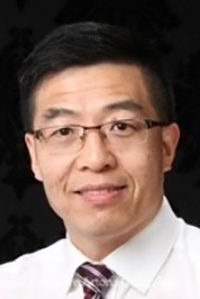
John (Dezhong) Li, MOT’20 has had a busy few years: completing his high school diploma, becoming a rehabilitation assistant, all the while taking care of his family and young children. Learn about how he hopes to improve the physical and psychological health in his future patients as a new Master of Occupational Therapy graduate.
What drew you to pursuing a Master of Occupational Therapy (OT) degree at UBC?
I had been working in developing and implementing mental health promotion programs to individuals, community groups, and organizations for over 5 years before I moved to Canada as a Federal Skilled Worker. I was really eager to help clients work toward maintenance and enhancement of psychological and social functioning. Pursuing a career as an occupational therapist was an important step for me to help individuals live healthier and more fulfilling lives.
The Master of Occupational Therapy (MOT) Program is designed to meet or exceed provincial and national standards of practice; therefore, I believed it would help me understand the Canadian occupational therapy profession and achieve my career goals.
What is one thing that you are taking with you from your experience in the MOT program?
In an introductory workshop at the beginning of the MOT program, Dr. Susan Forwell, professor and head of UBC’s Department of Occupational Science and Occupational Therapy, shared her working experience with a client, who was a parachute jumper and sustained spinal cord injury. The client was so depressed that he declined to participate in almost all occupational therapy treatments. He stated the only thing he wanted to do was parachute jump. Dr. Forwell respected his goals and made an intervention plan to facilitate the realization of his dream. Through the discussion of this case along with the whole learning journey of MOT program, I was deeply impressed by the meaningfulness of occupations in human life and the therapeutic potential of occupations on mental and physical health.
What is one piece of advice you have for students entering the MOT program?
Trust yourself in the vision of possibilities you can create. You are on the journey of learning how to promote change and enable occupations. You are working with a team of OTs who aim to inspire confidence, hope, and belief in the potential for personal and social transformation.
As you look ahead, what (or who) inspires you?
There are so many people and things that inspire me to move forward. If I have to pick only one, it is the book, Enabling Occupation II: Advancing an Occupational Therapy Vision for Health, Well-being, and Justice through Occupation (Townsend & Polatajko, 2013). It helps me understand the core domain of concern, core competency, and the practice process of occupational therapy. It helps me think holistically about person, occupations, and environment; therefore, we, as occupational therapists, not only promote personal health through enabling occupations, but also promote social justice for fair and equitable opportunities in occupations.
What do you hope will change as a result of COVID-19?
COVID-19 has changed many aspects of people’s life. We started working at home, online learning platform, telemedicine, virtual graduation ceremony, window visit for long term care home, increased unemployment benefits and so forth. However, we still need to increase awareness of negative effects of social isolation and provide social and technological changes to mitigate these effects.
Name one thing on your bucket list. Have you completed it?
In the past few years, I completed my high school diploma, finished the rehabilitation assistant (RA) program, worked as an RA while I was taking the MOT program, and looked after my family and young children. I really want to have some time to play tennis again. I am pretty sure I will complete it soon after I start my desired career.
Comments are closed, but trackbacks and pingbacks are open.